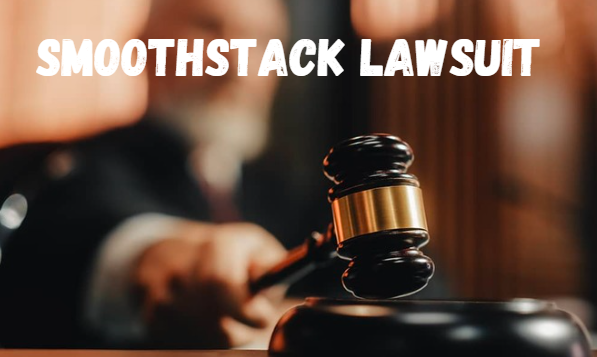Contents
Introduction
The Smoothstack lawsuit is a significant legal event that has captured the attention of the tech industry and beyond. This class action lawsuit, filed in April 2023 by multiple ex-employees, alleges various forms of misconduct and unfair practices by the company.
As we delve into the intricacies of this case, we aim to provide a detailed and nuanced understanding that goes beyond the surface-level reporting. This article will explore the background, allegations, legal proceedings, and broader implications of the Smoothstack lawsuit, offering unique interpretations and insights.
Background of Smoothstack
Company Overview
Smoothstack is a technology staffing and training firm based in the United States. The company specializes in recruiting and training individuals for IT roles, often focusing on recent graduates and career changers. Smoothstack’s business model involves extensive training programs followed by placement in tech companies, promising a pathway to lucrative careers in technology.
Business Model and Practices
Smoothstack’s business model is built around sourcing talent, providing intensive training, and then deploying this talent to client companies. The firm positions itself as a bridge between aspiring tech professionals and the industry, offering both in-person and remote training programs. The company’s practices include binding contracts, repayment clauses for training costs, and restrictive covenants, which have now come under legal scrutiny.
Overview of the Lawsuit
Initiation and Participants
The Smoothstack lawsuit was initiated in April 2023 when a group of former employees filed a class action lawsuit against the company. The plaintiffs allege that Smoothstack engaged in unfair labor practices, breach of contract, and other forms of misconduct. The lawsuit has garnered significant attention due to the number of plaintiffs and the serious nature of the allegations.
Key Allegations
The primary allegations in the Smoothstack lawsuit include:
- Unfair Labor Practices: Plaintiffs claim that Smoothstack imposed unreasonable working conditions, including excessive hours without appropriate compensation.
- Breach of Contract: It is alleged that the company did not honor the terms of employment contracts, particularly regarding pay rates and job placements.
- Misrepresentation and Fraud: The plaintiffs accuse Smoothstack of misleading them about the nature of the training programs and the actual costs involved.
- Restrictive Covenants: The lawsuit challenges the legality and fairness of the non-compete and repayment clauses in Smoothstack’s contracts.
Legal Basis and Claims
The lawsuit is based on various legal grounds, including labor laws, contract law, and consumer protection statutes. The plaintiffs are seeking damages for lost wages, repayment of training costs, and compensation for emotional distress. Additionally, they are demanding changes to Smoothstack’s business practices to prevent future misconduct.
Detailed Analysis of Allegations
Unfair Labor Practices
One of the core allegations is that Smoothstack subjected its employees to unfair labor practices. Former employees have reported working long hours without receiving overtime pay, a violation of labor laws. These practices allegedly included mandatory overtime, unrealistic performance targets, and lack of adequate breaks.
Insight and Interpretation
The allegation of unfair labor practices highlights a broader issue within the tech industry: the exploitation of junior employees. Companies like Smoothstack, which rely on a steady influx of new talent, may be incentivized to push their employees to the limit. This case underscores the need for stricter enforcement of labor laws and better protection for workers in training programs.
Breach of Contract
The lawsuit claims that Smoothstack failed to honor its contractual obligations. This includes allegations that the company did not provide the promised job placements or pay rates as outlined in employment agreements. Many former employees have reported discrepancies between their contracts and the actual terms of their employment.
Insight and Interpretation
Breach of contract allegations are particularly damaging because they strike at the trust between employers and employees. In the case of Smoothstack, the alleged breaches suggest systemic issues with how the company manages its employment agreements. This situation highlights the importance of transparency and accountability in employment contracts, especially in industries with high turnover rates.
Misrepresentation and Fraud
Plaintiffs accuse Smoothstack of misrepresentation and fraud, particularly regarding the nature of their training programs and associated costs. They claim that the company provided misleading information about the quality of training, job placement rates, and the financial obligations of the trainees.
Insight and Interpretation
The allegations of misrepresentation and fraud raise serious questions about ethical practices in the tech training industry. Misleading potential employees about training programs not only harms those individuals but also damages the reputation of the industry as a whole. This aspect of the lawsuit may prompt a closer examination of marketing and disclosure practices among tech training firms.
Restrictive Covenants
The lawsuit also challenges the restrictive covenants in Smoothstack’s contracts, including non-compete clauses and repayment obligations for training costs. Plaintiffs argue that these covenants are overly restrictive and unfairly limit their career opportunities.
Insight and Interpretation
Restrictive covenants, such as non-compete clauses, are a contentious issue in many industries. In the context of the Smoothstack lawsuit, these clauses may be seen as a way to control employees and prevent them from seeking better opportunities. This case could set a precedent for how restrictive covenants are viewed and enforced in the tech industry.
Legal Proceedings and Developments
Initial Court Filings
The initial court filings in the Smoothstack lawsuit detailed the plaintiffs’ allegations and outlined their demands for relief. The court documents included testimonies from former employees, contract agreements, and evidence of the alleged misconduct.
Smoothstack’s Response
In response to the lawsuit, Smoothstack has denied the allegations and stated that they intend to vigorously defend against the claims. The company argues that their business practices are legal and that the plaintiffs’ claims are without merit.
Court Hearings and Rulings
Since the filing of the lawsuit, there have been several court hearings to address preliminary motions and procedural matters. The court has yet to issue any major rulings, but the case is progressing through the legal system.
Potential Outcomes
The potential outcomes of the Smoothstack lawsuit include a settlement between the parties, a court ruling in favor of the plaintiffs, or a court ruling in favor of Smoothstack. A settlement could involve monetary compensation for the plaintiffs and changes to Smoothstack’s business practices. A court ruling in favor of the plaintiffs could set a legal precedent and have broader implications for the industry.
Broader Implications and Industry Impact
Impact on the Tech Training Industry
The Smoothstack lawsuit has the potential to significantly impact the tech training industry. If the plaintiffs are successful, other companies may face increased scrutiny and pressure to reform their practices. This could lead to better working conditions and more transparent business practices across the industry.
Legal and Regulatory Changes
The lawsuit may also prompt legal and regulatory changes. Lawmakers could introduce new regulations to protect employees in training programs and ensure fair treatment. This could include stricter enforcement of labor laws, clearer guidelines for employment contracts, and restrictions on restrictive covenants.
Corporate Accountability and Ethics
At a broader level, the Smoothstack lawsuit highlights the importance of corporate accountability and ethics. Companies in the tech industry and beyond may need to reevaluate their practices to ensure they are treating employees fairly and transparently. This case serves as a reminder that unethical practices can have serious legal and reputational consequences.
Conclusion
The Smoothstack lawsuit is a complex and multifaceted legal case that has significant implications for the tech industry. As the lawsuit progresses, it will be important to monitor developments and consider the broader impact on industry practices and regulations. By understanding the details and nuances of this case, we can gain valuable insights into the challenges and opportunities facing the tech training industry.
FAQs
What is the Smoothstack lawsuit about?
The Smoothstack lawsuit is a class action lawsuit filed by former employees against Smoothstack, a tech training and staffing firm. The plaintiffs allege unfair labor practices, breach of contract, misrepresentation and fraud, and unfair restrictive covenants.
When was the Smoothstack lawsuit filed?
The lawsuit was filed in April 2023.
What are the key allegations in the Smoothstack lawsuit?
The key allegations include unfair labor practices, breach of contract, misrepresentation and fraud, and unfair restrictive covenants in employment contracts.
What are the potential outcomes of the Smoothstack lawsuit?
Potential outcomes include a settlement, a court ruling in favor of the plaintiffs, or a court ruling in favor of Smoothstack. The case could also lead to industry-wide changes and legal reforms.
How might the Smoothstack lawsuit impact the tech training industry?
The lawsuit could lead to increased scrutiny of tech training firms, better working conditions, more transparent business practices, and potential legal and regulatory changes to protect employees.




